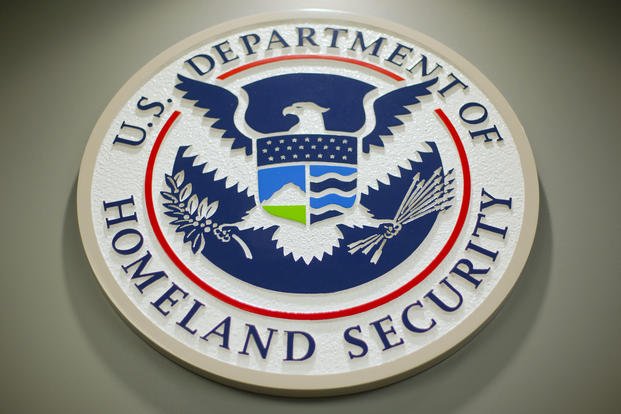The U.S. Immigration and Customs Enforcement (ICE) has completed its first-ever US deportation to Eswatini, a landlocked kingdom in southern Africa. Five migrants—nationals of Cuba, Jamaica, Laos, Vietnam and Yemen—arrived in Mbabane aboard a U.S. military aircraft. Each man had a final removal order after conviction for violent crimes. ICE secured their transit under armed escort and sent them directly to Matsapha Maximum Correctional Centre, some 31 km south of the capital. This US deportation to Eswatini marks a new chapter in third‑country removals.
ICE Removal Proceedings Overview
ICE removal proceedings overview begins when an individual fails to maintain lawful status or commits a removable offense. In these five cases, the migrants had exhausted all appeals in Immigration Court. ICE served Notice to Appear (NTA) documents charging them under Section 237 of the Immigration and Nationality Act (INA). After bond hearings and waiving further review, ICE finalized removal. Once DHS obtained Eswatini’s consent, ICE issued travel documents under the Eswatini embassy repatriation process and arranged secure transport. For more on ICE processes, see the ICE Removal Proceedings guide.
-
Notice to Appear (Form I‑862) served
-
Immigration judge orders removal under INA 237
-
Waiver of appeal to the Board of Immigration Appeals
-
ICE issues standardized travel documents
Legal Grounds for US Deportation to Eswatini
U.S. law authorizes third‑country removals when a migrant’s home country refuses repatriation. Here, Eswatini accepted convicts under bilateral agreement. ICE relied on INA 241(a)(2), which permits removal of noncitizens convicted of aggravated felonies. Two men had murder convictions; three had sexual‑assault convictions. ICE cited “legal grounds for migrant deportation” to satisfy removal criteria:
-
Conviction of an aggravated felony – INA 101(a)(43)
-
Exhaustion of all relief or appeal
-
Confirmation of receiving country’s willingness to admit under U.S.–Eswatini immigration agreement
For full text, visit the Department of Homeland Security website.
Eswatini Embassy Repatriation Process
Under the Eswatini embassy repatriation process, ICE coordinates closely with the Kingdom’s Ministry of Foreign Affairs. Steps include:
-
ICE submits a diplomatic note requesting admission.
-
Eswatini embassy in Washington issues temporary travel permits.
-
ICE dispatches migrants on a charter flight.
-
Eswatini authorities receive and verify identities at Mbabane International.
-
Detainees transfer to Matsapha prison under local guard.
This streamlined protocol mirrors procedures outlined in ICE’s Foreign Operations Manual.
U.S.–Eswatini Immigration Agreement
The U.S.–Eswatini immigration agreement dates to a 2018 memorandum of understanding (MOU). It grants Eswatini authority to accept certain noncitizen detainees, even when they lack direct nationality ties. The MOU aims to clear ICE backlogs by sharing removal burdens. Key clauses:
-
Article 3 (Admissions): Eswatini must admit specified persons within 30 days of request.
-
Article 5 (Human Rights): Both nations commit to detainee safety and humane treatment.
-
Article 7 (Costs): U.S. covers initial transport; Eswatini covers detention costs.
This framework underpinned the May 2025 removal of eight migrants to South Sudan and now the five to Eswatini.
Department of Homeland Security Eswatini Cases and Policy on US Deportation to Eswatini
Since January 2025, DHS has escalated removals of convicted migrants to third countries. The Department of Homeland Security Eswatini cases represent a pilot for wider third‑country deportations. DHS issued a press release on these actions. In June, the U.S. Supreme Court upheld third‑country removal authority, clearing legal challenges. DHS now evaluates other partner nations under similar agreements. This policy shift reinforces DHS’s mandate to remove all persons ordered deported.
Life in Eswatini Correctional Facilities Post
Matsapha Maximum Correctional Centre holds up to 550 inmates. ICE’s notice confirmed the five men entered newly built isolation units. Conditions include:
-
Single‑occupancy cells with basic furnishings
-
Daily medical checks by prison health staff
-
Limited outdoor recreation periods
Local NGOs report overcrowding and supply shortages. Human Rights Watch has documented poor hygiene and occasional violence in Eswatini’s prisons. Under the U.S.–Eswatini immigration agreement, Eswatini must allow regular consular visits by U.S. officials.
International Law and Human Rights
Rights experts warn third‑country deportations can breach non‑refoulement obligations under the Convention Against Torture. In 2023, the UN Committee Against Torture criticized U.S. practices that risk sending migrants to nations where they face torture or abuse. U.S. law requires DHS to ensure receiving countries permit safe reintegration. ICE’s risk assessments must document no significant harm. So far, Eswatini’s record on political prisoners and press freedom remains under scrutiny.
Reintegrating After US Deportation to Eswatini
Reintegration support in Eswatini remains limited. NGOs provide:
-
Temporary shelter
-
Vocational training
-
Counseling services
Eswatini’s Ministry of Home Affairs launched a pilot program in 2024 to offer job placement assistance to returnees. However, funding constraints hamper reach. Returnees often struggle to obtain identity documents and secure housing. Maple Crest Immigration monitors reintegration trends to advise future clients facing removal.
How Maple Crest Immigration Can Help with US Deportation Cases
Facing removal? Maple Crest Immigration Law Firm offers:
-
Case assessment on legal grounds for migrant deportation
-
Representation in Immigration Court
-
Appeals to Board of Immigration Appeals
-
Liaison with foreign embassies for repatriation planning
-
Post‑deportation reintegration referrals
Our attorneys stay current on ICE removal proceedings overview and U.S.–Eswatini immigration agreement updates. We fight to keep families together and explore every legal remedy.
If you or a loved one face US deportation to Eswatini, act now. Get in touch with Maple Crest Immigration Law Firm for a consultation. Our experts will guide you through every step—from detention to potential relief options. Contact us today.


